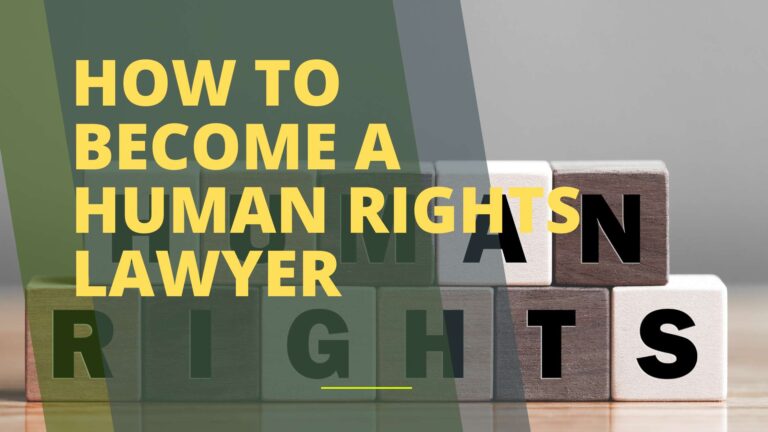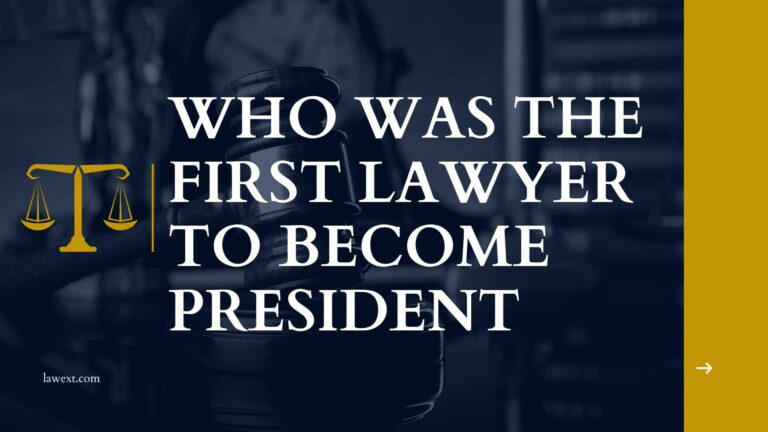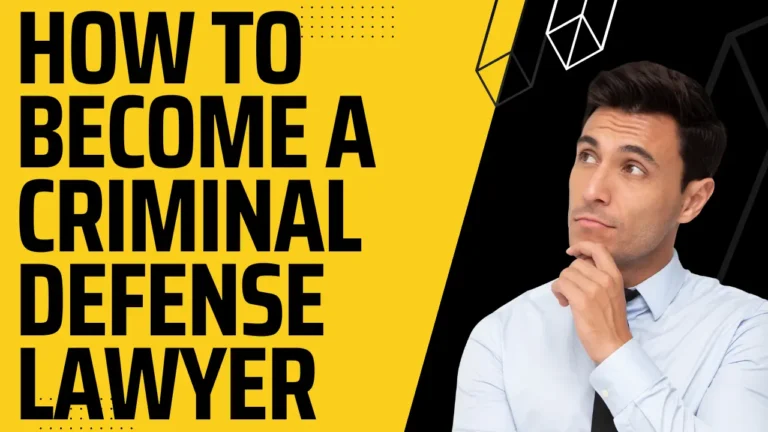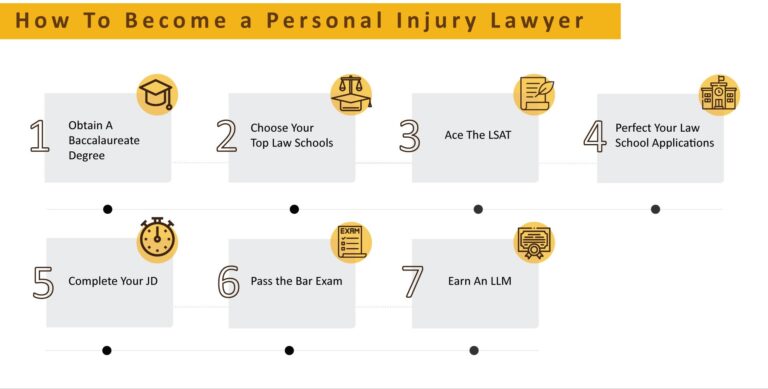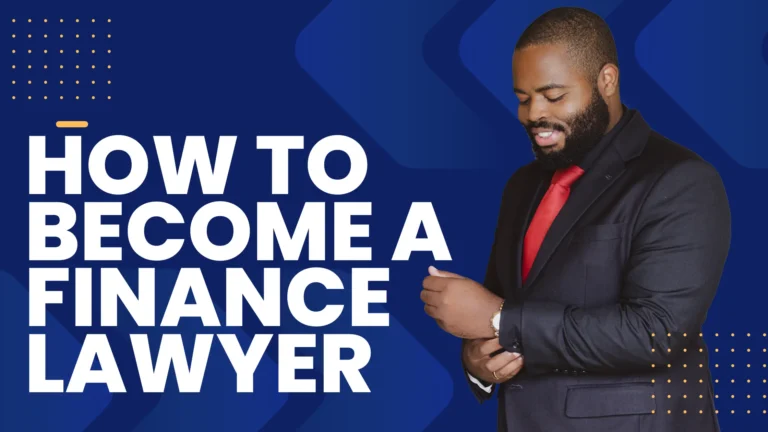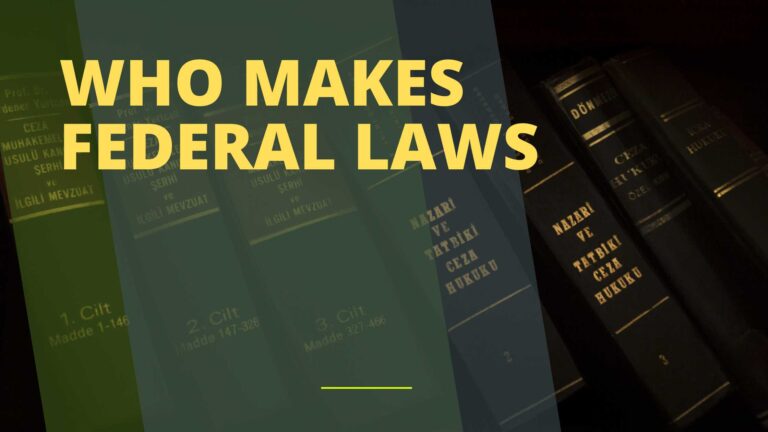How to Become an Education Lawyer?
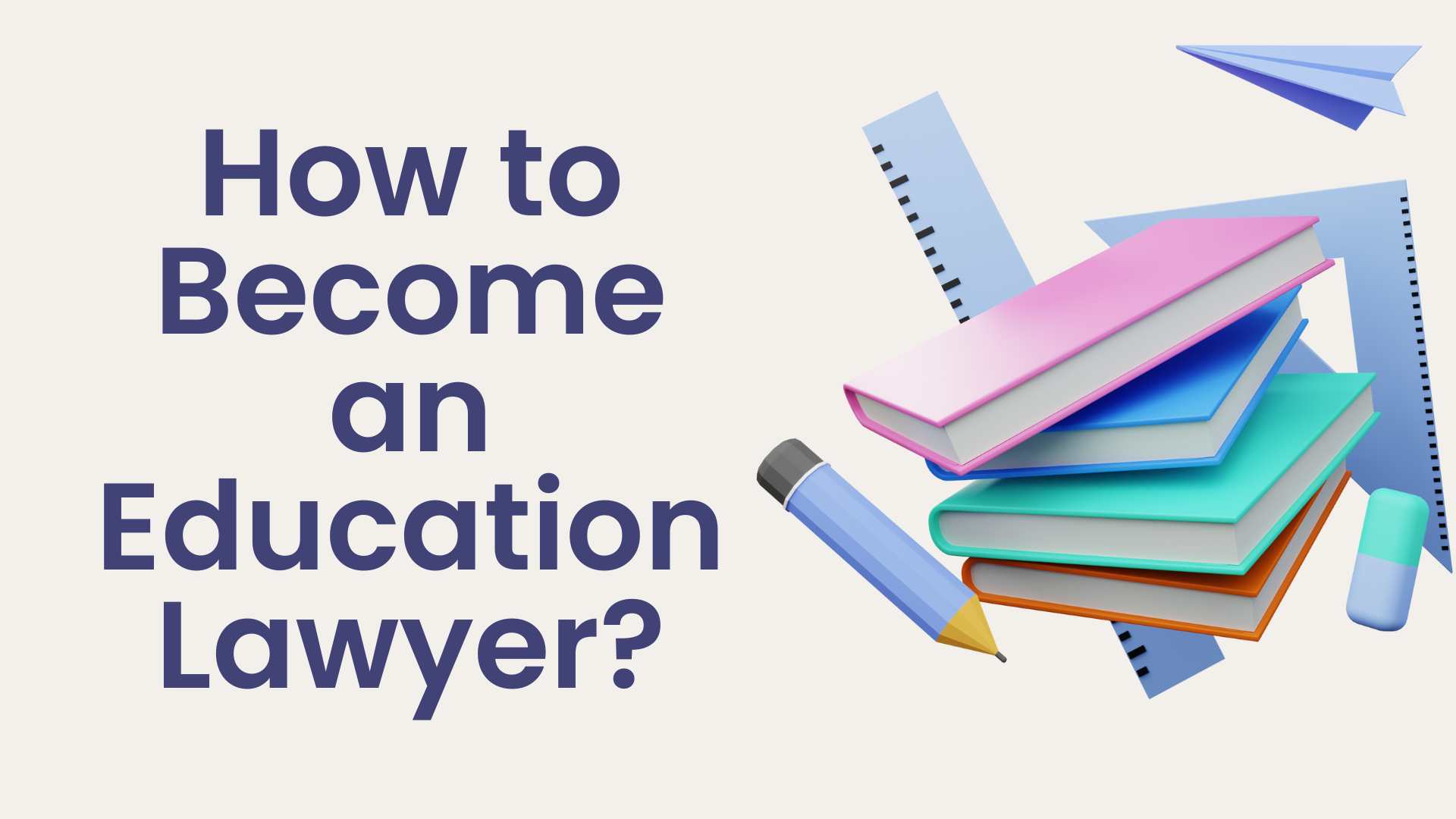
To become an education lawyer, you need to earn a law degree and specialize in education law through coursework or experience. Additionally, you may need to pass a state bar exam and obtain a license to practice law.
Table of Contents
How to Become an Education Lawyer? Pursuing internships or clerkships in education law can provide valuable experience and networking opportunities in this field. Education lawyers work on a variety of legal matters in the education sector, including issues related to student rights, special education, school governance, and employment law.
They may represent clients such as students, families, schools, colleges, or government entities. Becoming an education lawyer requires a strong interest in both education and law, as well as dedication to advocating for the rights and interests of students and educational institutions.
Overview
Discover the path to becoming an education lawyer, a rewarding and impactful career that requires a strong legal background and a passion for advocating for students’ rights and educational equity. Gain expertise in education law, navigate complex school systems, and make a difference in the lives of students and communities.
Are you passionate about both law and education? If so, becoming an education lawyer might be the perfect career path for you. Education lawyers play a vital role in advocating for students’ rights, ensuring compliance with educational laws and regulations, and representing educational institutions and professionals. In this blog post, we will provide an overview of what it takes to become an education lawyer, including the necessary education, skills, and job prospects.
Education Lawyer: An Introduction
An education lawyer is a legal professional who specializes in matters related to education. They work closely with educational institutions, students, parents, and other stakeholders to ensure that educational policies and practices comply with the law. Education lawyers may provide legal representation, offer legal advice, and advocate for individual students or groups of students.
Becoming an education lawyer requires extensive knowledge of education laws, policies, and regulations. They must have a strong understanding of the legal framework surrounding education, including federal and state laws, as well as relevant statutes and case law.
Importance Of Education Lawyers
Education lawyers play a crucial role in ensuring that students have equal access to quality education and that their rights are protected. They are instrumental in addressing issues such as discrimination, special education, disciplinary actions, and student safety. Education lawyers also provide legal counsel to schools and educational institutions, helping them navigate complex legal issues.
Additionally, education lawyers help shape educational policies and practices by working with legislators, policymakers, and educational organizations. They advocate for positive changes in the education system, striving to create a fair and inclusive learning environment for all students.
Whether you aspire to represent students, educational institutions, or both, a career as an education lawyer offers a unique opportunity to make a positive impact in the field of education through the legal system.
Educational Requirements
Education lawyers play a crucial role in advocating for students’ rights and ensuring equal access to quality education. To embark on this rewarding career path, aspiring education lawyers must meet specific educational requirements. Law school admission and the pursuit of specialized law degrees are key steps to becoming an education lawyer.
Law School Admission
Before becoming an education lawyer, the first step is to gain admission into law school. This requires completing a bachelor’s degree in any field from an accredited institution. While there is no specific undergraduate major required for law school admission, it is advisable to choose a field of study that aligns with your interest in education law. Some popular choices include political science, public policy, or education itself.
Once you have completed your undergraduate studies, you will need to take the Law School Admission Test (LSAT). This standardized test assesses the critical thinking, reading comprehension, and logical reasoning skills necessary for success in law school. A high LSAT score can greatly enhance your chances of gaining admission to a reputable law school.
Law Degree Specializations
After successfully gaining admission to law school, students can choose to specialize in specific areas of law. For those interested in becoming education lawyers, pursuing a specialization in education law or a related field is highly recommended. While not all law schools offer a stand-alone education law program, there are several ways to tailor your legal education towards this area of practice.
One option is to select elective courses focused on education law within a general law degree program. These courses may cover topics such as special education law, education policy, student rights, or school liability. Additionally, some law schools offer joint-degree programs where you can simultaneously earn a J.D. (Juris Doctor) and a Master’s degree in education, providing a comprehensive understanding of both the legal and educational aspects of the field.
If you are unable to pursue a specialization in education law during law school, there are still opportunities to gain relevant experience after graduation. Consider seeking internships or entry-level positions at law firms that specialize in education law, government agencies, or nonprofit organizations focused on educational advocacy. This hands-on experience can further develop your expertise in this field and open doors to future opportunities as an education lawyer.
By meeting the educational requirements, gaining admission to law school, and pursuing specialized education law training, you will be on a solid path toward becoming an education lawyer. Remember to stay focused, dedicated, and passionate about advocating for students’ rights and promoting equal access to quality education.

Skills And Knowledge
Developing a career as an education lawyer is an exciting and rewarding journey. It requires a combination of specialist skills and comprehensive legal knowledge. Aspiring education lawyers must possess specific expertise to navigate the complexities of the education sector while advocating for their clients. In this section, we delve into the crucial skills and knowledge that every aspiring education lawyer should possess.
Legal Research And Writing
To effectively represent clients in education-related legal matters, education lawyers must have excellent legal research and writing skills. They need to be adept at conducting thorough legal research to stay updated with the latest laws and regulations governing the education sector. This involves analyzing case precedents, statutes, and legal documents to build compelling arguments and support their clients’ positions.
Education lawyers must also excel in writing comprehensive legal briefs, pleadings, and other legal documents. These documents must be clear, concise, and persuasive, conveying complex legal concepts in a manner that is easily understandable for judges, opposing counsels, and clients. Strong legal writing skills are vital to effectively advocate for clients and present their arguments convincingly.
Advocacy And Negotiation Skills
Advocacy and negotiation skills are paramount for education lawyers as they are frequently involved in dispute resolution, whether it be through negotiations, mediations, or litigation. These skills encompass the ability to communicate persuasively, negotiate effectively, and make compelling arguments in front of different stakeholders, including school administrators, board members, parents, and judges.
Education lawyers must be capable of advocating for their clients’ interests while maintaining professionalism and respect. This involves employing strategies to negotiate favorable outcomes, finding common ground between conflicting parties, and representing their clients’ best interests at all times. Strong advocacy and negotiation skills play a crucial role in achieving positive resolutions and ensuring the protection of students’ rights and educational interests.
Experience And Networking
Building a successful career as an education lawyer requires both experience and an extensive network. By gaining relevant experience and actively networking, you can establish yourself in the field and open doors to future opportunities. Below, we discuss two important aspects: internships and clerkships, as well as joining professional organizations.
Internships And Clerkships
Internships and clerkships serve as invaluable stepping stones for aspiring education lawyers. These opportunities allow you to gain practical experience and develop a deep understanding of the legal landscape in educational institutions. By working directly with experienced professionals, you can learn the ropes and enhance your skills in education law.
During an internship or clerkship, you may assist in researching and analyzing legal issues related to education, drafting legal documents, and participating in client meetings or court proceedings. It provides a hands-on experience that cannot be replicated in a classroom setting.
To secure an internship or clerkship, it is essential to reach out to law firms specializing in education law or to educational institutions looking for legal assistance. Make sure to highlight your passion for education law, strong academic performance, and any relevant extracurricular activities or coursework that demonstrate your commitment to the field.
Remember, internships and clerkships not only offer an opportunity to gain experience but also provide a chance to establish connections within the education law community. Building positive relationships with professionals in the field can lead to mentorship opportunities and future job prospects.
Joining Professional Organizations
In addition to gaining hands-on experience, joining professional organizations can significantly contribute to your growth as an education lawyer. These organizations provide a platform for networking, staying updated on industry trends, and accessing resources that can enhance your knowledge and skills.
There are several professional organizations specifically tailored to education law, such as the National Association for Law Placement (NALP) and the Education Law Association (ELA). These organizations offer access to conferences, seminars, and workshops where you can connect with like-minded professionals and learn from seasoned experts in the field.
Being an active member of a professional organization can help you stay informed about new regulations, court decisions, and emerging legal issues in education law. Additionally, it can offer opportunities for leadership roles, where you can contribute to the field’s development and establish yourself as an authority.
By leveraging internships, clerkships, and professional organizations, you can lay a solid foundation for your education law career. These experiences and networks will not only enhance your expertise but also set you apart from other professionals in the field.

Career Opportunities
Education law offers a wide range of career opportunities for individuals who are passionate about making a difference in the field of education. Whether you have a background in law or education, becoming an education lawyer can open doors to various professional paths. In this blog post, we will explore two main career opportunities in education law: Government and Non-Profit Organizations and Private Practice and Consulting.
Government And Non-profit Organizations
If you are interested in working in the public sector or making a positive impact through non-profit organizations, pursuing a career as an education lawyer in the government or non-profit sector might be the right choice for you. In these roles, you have the opportunity to influence education policy, advocate for students’ rights, and represent educational institutions or government agencies in legal matters.
- Education Policy Advocate: As an education lawyer working for a government agency or a non-profit organization, you can play a crucial role in shaping education policies that ensure equal opportunities and inclusivity. Your expertise in law combined with your understanding of educational systems can contribute to creating positive changes at a systemic level.
- Student Rights Advocate: Students face numerous legal challenges, ranging from discrimination and disciplinary actions to special education services. By working as an education lawyer in the government or non-profit sector, you can represent students in these cases, ensuring their rights are protected and advocating for their best interests.
- Institutional Counsel: Educational institutions, whether public or private, require legal guidance and representation. As an education lawyer, you can serve as counsel for schools, colleges, or universities, advising them on compliance with education laws, contracts, and employment matters. Additionally, you can represent these institutions in legal disputes or negotiations.
Private Practice And Consulting
If you prefer a more flexible career path and the opportunity to work with diverse clients, starting your own private practice or working as a consultant in education law might be the right fit. In this role, you can provide legal services to individuals, schools, or educational organizations on a case-by-case basis. Here are a few potential career paths in private practice and consulting:
- Individual Clients: Education lawyers in private practice often work with parents, students, or teachers who require legal assistance in areas such as special education, school safety, or disciplinary matters. By offering personalized services, you can make a positive impact on individuals facing legal challenges in the education system.
- Independent School Counsel: Independent schools often have unique legal needs, ranging from compliance with state law to developing policies and contracts. As an education lawyer, you can offer your expertise and guidance to these institutions, ensuring they operate within legal boundaries and maintain a safe educational environment.
- Consulting: Consulting in education law enables you to provide expert advice and guidance to various stakeholders within the education system. You can offer your services to school districts, educational companies, or government agencies, assisting them in navigating legal complexities, developing policies, or resolving disputes.
Whether you choose to work for the government and non-profit organizations or establish a private practice or consulting business, a career in education law allows you to combine your passion for law and education. It offers the opportunity to make a positive impact on students, teachers, and educational institutions, ensuring equal access to quality education.
Conclusion
Becoming an education lawyer requires a combination of passion, dedication, and the right educational background. By following the steps outlined in this blog post, you can begin your journey towards this rewarding career path. Remember to focus on building a strong legal foundation, gaining relevant experience, and staying up-to-date with changes in education law.
With determination and hard work, you can make a positive impact in the field of education as a lawyer.
Introducing Jonah Plum, a legal luminary whose journey through the corridors of justice has been intertwined with the eloquence of the written word. Born and raised in the vibrant city of Seattle, Washington, Jonah's early fascination with language and debate laid the foundation for a remarkable career in law.
Jonah's scholarly odyssey began at Harvard Law School, where they immersed themselves in the study of jurisprudence, honing their analytical prowess and legal acumen. Armed with a law degree, they entered the legal arena, navigating courtrooms and boardrooms with a fervor for justice. Yet, it was the realization of the transformative power of the written word that led Jonah to pivot from legal briefs to the world of blogging.
A digital advocate in the truest sense, Jonah recognized the need for demystifying legal concepts and making them accessible to a broader audience. This blog, a virtual repository of legal insights, transcends geographical boundaries, connecting with a global readership hungry for clarity amidst legal complexities.
Beyond the black letter of the law, Jonah delves into the human stories that underscore the legal landscape. Their writing goes beyond legal analysis, weaving narratives that humanize the law, shedding light on its impact on individuals and society.

